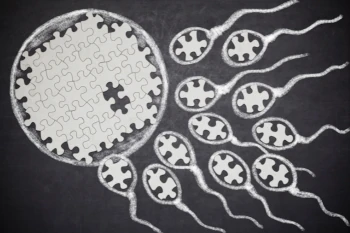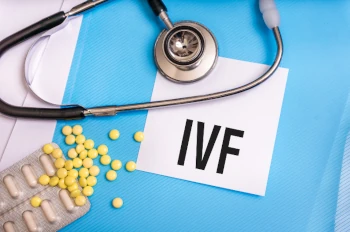Secondary Infertility
 When a people decide to start a family, they often imagine having more than one child. But sometimes the reality of this is more difficult and not to be assumed.
When a people decide to start a family, they often imagine having more than one child. But sometimes the reality of this is more difficult and not to be assumed.
Secondary infertility occurs in 50 percent of all fertility causes. When this difficulty happens it can often catch people off guard. Secondary infertility is the inability to conceive or carry a baby to term after one or more successful pregnancies. Secondary infertility is commonly diagnosed after trying to conceive for between 6 -12 months. As with primary fertility, secondary fertility issues can relate to either partner or both partners. Resulting in a combination of factors or unknown factors.
Causes of secondary fertility difficulties

There are several things that may cause secondary fertility difficulties. Healthy fertility and increased chances of conception are strongly linked to a healthy lifestyle. Factors related to lifestyle such as weight gain, diet, smoking, certain medications, alcohol or drug use, sexually transmitted infections, stress, poor sleep patterns, exposure to heat and pollutants are all possible influences that can affect both a woman’s and a man’s ability to conceive. They can have a negative effect on fertility causing interruptions in the ovulation process for women and inhibition of sperm production may occur in men.
Increased age at reproduction can impact both men and women. Egg quality and quantity decreases over the female reproductive lifespan and sperm count and quality decreases over the male lifespan. There may have been complications during a previous pregnancy or surgical intervention required. There could be scarring or alterations to the internal structures. When an infection, previous pregnancy or a surgical procedure cause changes to the structure of the reproductive system, it is possible that the eggs aren’t travelling properly. Sometimes it may be unexplained and not possible to diagnose the cause for infertility.
 When lifestyle changes don’t result in pregnancy it may be necessary to consider thinking about assisted fertility treatments such as medications to stimulate the ovaries, intrauterine insemination (IUI), in vitro fertilization (IVF) or intracytoplasmic sperm injection (ICSI).
When lifestyle changes don’t result in pregnancy it may be necessary to consider thinking about assisted fertility treatments such as medications to stimulate the ovaries, intrauterine insemination (IUI), in vitro fertilization (IVF) or intracytoplasmic sperm injection (ICSI).
There are several supportive treatments including acupuncture, reflexology, certain herbs and supplements that may be helpful in increasing fertility. Every person is unique and there are unique factors related to everyone’s inability to conceive. It is important to consider all options and work with skilled professionals who have experience working with and successfully treating infertility.
Secondary infertility can be
very stressful
 Secondary infertility can be a very stressful and traumatic experience for both partners. When you’re trying to conceive, sex can become perfunctory and focused on the prime conception time of ovulation.
Secondary infertility can be a very stressful and traumatic experience for both partners. When you’re trying to conceive, sex can become perfunctory and focused on the prime conception time of ovulation.
Experts recommend having sex outside of ovulation helps keep it fun and helps to reduce stress levels, which encourages balanced hormones. Scientists are sure of one thing, joyful arousal during sex affects how many sperm cells are ejaculated and the quality of the female orgasm supports fertilization.
Therefore, it should not be underestimated that passionate sex and sexual pleasure positively contribute to fertility.
Thank you for reading – Colic. I hope you enjoyed it, if you would like more please follow me on Facebook and Instagram. Or if you would like to get in touch please Contact Me.
See you soon, Sally
